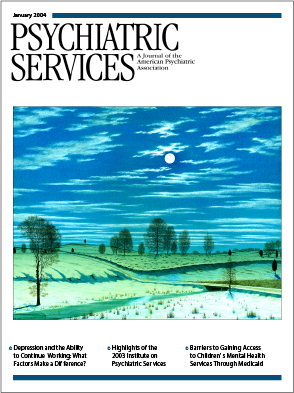Recently a request appeared on a clinical psychiatry listserv for suggestions for medication for a child suffering "severe separation anxiety" on going to preschool. Some respondents suggested medications, some suggested behavioral treatments, and others asked whether the situation was so abnormal. Yes, the severe separation anxiety had to be addressed, but was it really deserving of the term "pathology"? The incident raises questions about what is normal and what is illness at a time when the medicalization of human unhappiness is so pervasive.
At a meeting of the American Psychiatric Association's (APA's) assembly, members discussed whether to merge DSM axes I and II. When does a personality actually become a personality disorder? Certainly, the differentiation would vary between persons, times, places, and cultures. And at what point does normal upset after trauma shift into PTSD? The answers to questions such as these will deeply affect DSM-V, which is currently in the early stages of development.
At the APA assembly many were inclined to "leave it to the experts." However, this is not exactly bench-science. It smacks of the sociocultural, the philosophical, and the political. In addition, because diagnosing something as a disease has implications for mitigation and exculpation, it is a matter of practical human and societal interest, with strong legal, political, and economic implications.
The disease model has been progressing for several centuries. For example, in the 1603 decision in Beverley's Case alcoholism was not regarded as a disease but as an act of the individual's free will. Around 1800 Rush in America and Trotter in England expounded the disease model of alcoholism, and in early-19th-century England the volitional prong of the insanity defense developed. Disease, not just free will, could cause behavioral disorders such as alcoholism.
By the 1960s the federal courts had gone further down the exculpatory road in regard to the volitional prong, decriminalizing the addictive state of a drug addict. An alcoholic's public drunkenness was actually held "involuntary as a result of disease." But then the courts, fearing they had gone too far, pulled back. The 1968 ruling in Powell v. Texas stated that one could not "conclude alcoholics…in general…are unable to control their performance," and Justice Marshall wrote of "a constantly shifting adjustment of the tension between the evolving aims of the criminal law and changing religious, moral, philosophical, and medical views of the nature of man."
The question of what is pathology and what is normal is not pure science. It has profound sociocultural, legal, political, and philosophical implications, all a matter of practical human interest. It is too important to be left solely to experts.

